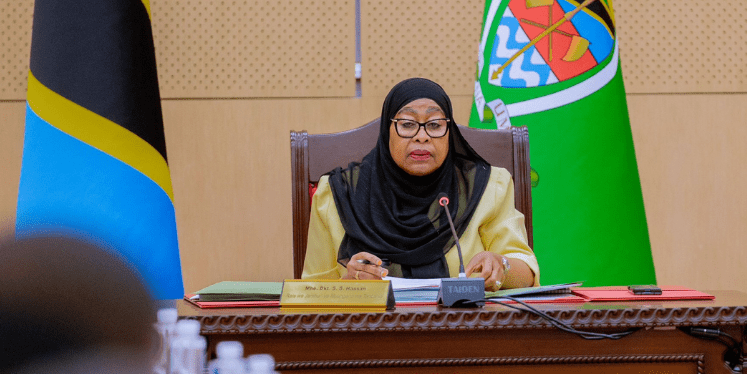
Tanzania Bans Kenyans from 15 Businesses in Sweeping Crackdown
Kenya News – The government of Tanzania has moved to tighten control over small and medium-sized enterprises (SMEs) by banning Kenyans and other foreign nationals from running 15 select business activities, traditionally dominated by locals.
The ban was officially declared through Government Notice No. 487A issued on July 28, 2025, and is intended to safeguard local economic interests by restricting foreign involvement in key sectors.

Licensing Ban Targets Specific Economic Sectors
According to the directive, licensing authorities are now barred from issuing or renewing business permits for non-citizens in the affected sectors. Foreigners who currently hold licenses in the listed businesses will be allowed to continue only until their current permits expire.
“The business activities specified in the Schedule to this Order shall not be carried out by non-citizens,” said Trade and Industry Minister Selemani Saidi. He added that licensing bodies must comply immediately by denying applications from non-citizens for prohibited business lines.
Stiff Penalties for Violators
Foreign nationals found operating in restricted sectors risk facing a fine of no less than TZS 10 million (approx. KSh 610,000), a jail term of up to six months, and automatic revocation of their visa and residence permits.
Tanzanians who aid or collaborate with foreign violators also face legal consequences—fines of up to TZS 5 million or three months in prison.
“Any non-citizen conducting prohibited business will be prosecuted, fined, or deported. Citizens who assist will also be punished accordingly,” the government statement warned.
Full List of Banned Business Ventures for Foreigners
The 15 restricted business sectors include:
- Wholesale and retail trade (excluding supermarkets and specialized stores)
- Mobile money services
- Mobile phone and electronics repairs
- Salons and barber shops (except those in hotels or tourist areas)
- Cleaning services
- Small-scale mining operations
- Postal and parcel delivery
- Local tour guiding
- Radio and TV station ownership and operation
- Museum and curio shop management
- Real estate brokerage and agency
- Clearing and forwarding services
- On-farm crop purchasing
- Gambling machine operations (outside of licensed casinos)
- Ownership of micro and small industries
Why Tanzania Took the Step
The move follows increasing concerns from Tanzanian citizens that foreigners—including some Kenyans and Chinese nationals—were dominating businesses in areas like Kariakoo market in Dar es Salaam.
Tanzania joins several other African nations, such as South Africa, Nigeria, Ghana, Zimbabwe, Swaziland, Zambia, and Botswana, which have introduced restrictions to protect domestic enterprises from foreign competition.
Impact on Kenya-Tanzania Trade Relations
This development may add new complexities to Kenya-Tanzania trade relations, especially as the two neighboring countries continue engaging in bilateral discussions to ease cross-border trade barriers.
President William Ruto and his Tanzanian counterpart Samia Suluhu Hassan have previously championed economic cooperation. However, this latest restriction could trigger new negotiations or responses from Kenya’s Ministry of Trade.
What’s Next for Affected Foreigners?
Foreign entrepreneurs operating in the listed sectors are advised to explore alternative industries or exit before their licenses expire to avoid penalties, legal trouble, or deportation.

